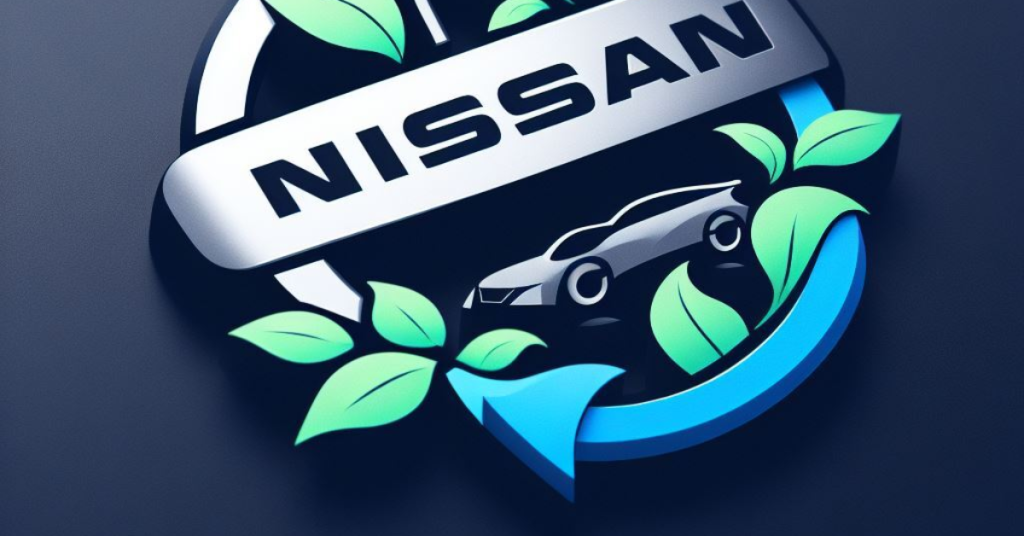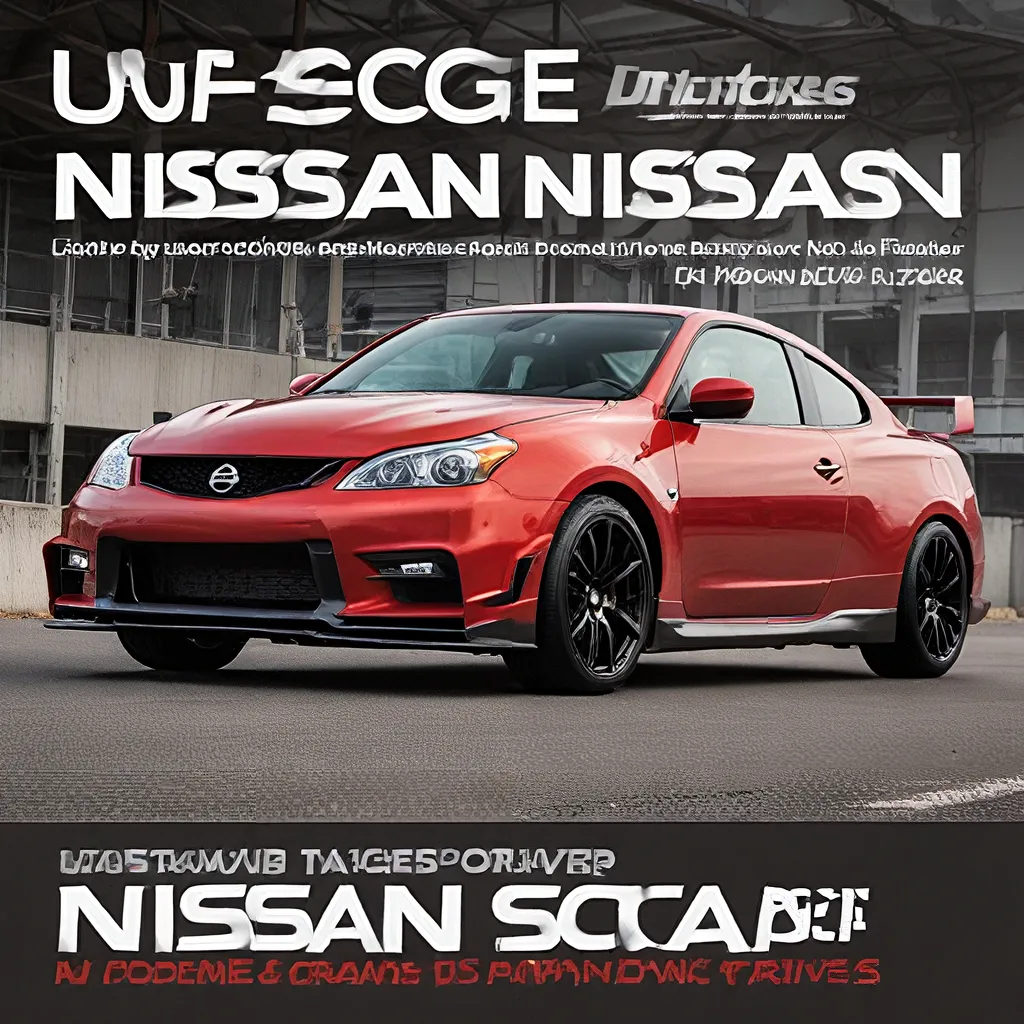
Ah, the joys of car ownership – the freedom of the open road, the sense of pride as you polish your ride, and the… wait, what’s that dreaded sound coming from under the hood? If you’re a Nissan owner, you’re no stranger to the myths and misconceptions that swirl around automotive maintenance. But fear not, my fellow Nissan enthusiasts, for I’m here to set the record straight and debunk the most common maintenance myths that have been haunting you.
Myth #1: Premium Fuel is a Must for Nissan Vehicles
Ah, the age-old debate about fuel grades – it’s enough to make your head spin faster than your tires. But let me tell you, when it comes to Nissan vehicles, the myth that you must use premium fuel is just that – a myth. In fact, most Nissan models are designed to run perfectly fine on regular unleaded gasoline.
Sure, some high-performance Nissan models may benefit from the extra octane in premium fuel, but for the vast majority of Nissan owners, regular gas will do the trick just fine. Don’t believe me? Just take a look at your Nissan’s owner’s manual – it’ll clearly state the recommended fuel type, and I can guarantee it won’t be anything fancy or expensive.
So, the next time you’re at the pump, feel free to save a few bucks and fill up with regular. Your Nissan will thank you, and so will your wallet.
Myth #2: Oil Changes are Necessary Every 3,000 Miles
Ah, the old “3,000-mile oil change” myth – it’s been around longer than the first Datsun 240Z. But let me tell you, this is one maintenance routine that’s gone the way of the dodo. Modern Nissan engines and oils are engineered to go much longer between changes, with many manufacturers recommending intervals of 5,000 miles or more.
Now, I know what you’re thinking – “But won’t my engine turn into a sludgy mess if I wait that long?” Not a chance, my friend. Nissan’s advanced engine technology and high-quality oils are designed to keep your engine running smoothly for thousands of miles between changes. In fact, going by the 3,000-mile rule can actually do more harm than good, as it can lead to unnecessary oil changes and a waste of your hard-earned money.
So, take a deep breath, grab your owner’s manual, and follow Nissan’s recommended oil change interval. Your engine will thank you, and your wallet will be a little heavier too.
Myth #3: Bigger is Better When It Comes to Tires
Ah, the lure of the big and beefy tire – it’s enough to make any Nissan owner’s heart race. But before you go swapping out those factory-installed tires for a set of monster truck-sized rubbers, let me clue you in on a little secret: bigger is not always better.
You see, Nissan engineers have carefully selected the tires that come equipped on their vehicles, taking into account a whole host of factors like handling, fuel efficiency, and ride comfort. Straying too far from those recommended tire sizes can actually do more harm than good, potentially affecting your Nissan’s performance, safety, and even its longevity.
Now, I’m not saying you can’t upgrade your tires – heck, a nice set of performance-oriented tires can do wonders for your driving experience. But when it comes to size, stick to what Nissan has recommended. Your car will handle better, your fuel economy won’t take a nosedive, and your wallet will thank you in the long run.
Myth #4: Aftermarket Parts are Always Inferior to OEM
Ah, the age-old debate about aftermarket parts – it’s enough to make your head spin faster than your Nissan’s wheels. But let me let you in on a little secret: not all aftermarket parts are created equal, and in some cases, they can actually be superior to the original equipment manufacturer (OEM) parts.
Now, I’m not saying you should go out and start swapping every single part on your Nissan with the cheapest aftermarket alternative you can find. That would be a recipe for disaster. But there are plenty of high-quality, well-engineered aftermarket parts out there that can actually improve the performance, reliability, and even the longevity of your Nissan.
Take, for example, the world of aftermarket exhaust systems. A well-designed, high-quality aftermarket exhaust can not only give your Nissan a throatier, more aggressive sound, but it can also improve airflow and boost horsepower. And let’s not forget about those fancy aftermarket wheels and tires – they can transform the way your Nissan handles and looks, all while providing a smoother, more comfortable ride.
So, the next time you’re considering an upgrade for your Nissan, don’t be afraid to explore the world of aftermarket parts. Just be sure to do your research, stick to reputable brands, and remember that sometimes, bigger isn’t always better.
Myth #5: Nissan Vehicles Don’t Require Regular Maintenance
Ah, the ultimate automotive myth – the idea that Nissan vehicles are somehow immune to the need for regular maintenance. I hate to burst your bubble, but this one is about as true as the Loch Ness Monster riding a unicorn.
The truth is, every car, regardless of make or model, requires a certain level of TLC to keep it running at its best. And that includes your beloved Nissan. From routine oil changes and tire rotations to more complex services like brake pad replacements and transmission fluid flushes, your Nissan needs a little love and attention to stay in tip-top shape.
Now, I know what you’re thinking – “But my Nissan is so reliable, it doesn’t need all that fussy maintenance, right?” Wrong, my friend. Neglecting regular maintenance is a surefire way to end up with a hefty repair bill down the road. Trust me, it’s better to invest a little time and money upfront to keep your Nissan running like a well-oiled machine.
So, don’t fall for the myth of the maintenance-free Nissan. Embrace your owner’s manual, follow the recommended service schedule, and keep your Nissan in peak condition. Your car (and your wallet) will thank you in the long run.
Conclusion: Debunking Myths, Embracing Maintenance
Well, there you have it, Nissan enthusiasts – the truth behind the most common maintenance myths that have been haunting you. From the fuel grade debate to the myth of the maintenance-free Nissan, I’ve laid it all out for you, straight from the horse’s mouth.
Remember, your Nissan is a finely tuned machine, and it deserves the best care and attention you can give it. So, ditch those myths, embrace Nissan’s recommended maintenance routines, and keep your ride running like a dream.
And who knows, maybe one day, you’ll be the one debunking maintenance myths to your fellow Nissan owners. After all, knowledge is power, and in the world of car maintenance, power is a beautiful thing.
Now, if you’ll excuse me, I’ve got an oil change to schedule. See you on the road, Nissan faithful!






